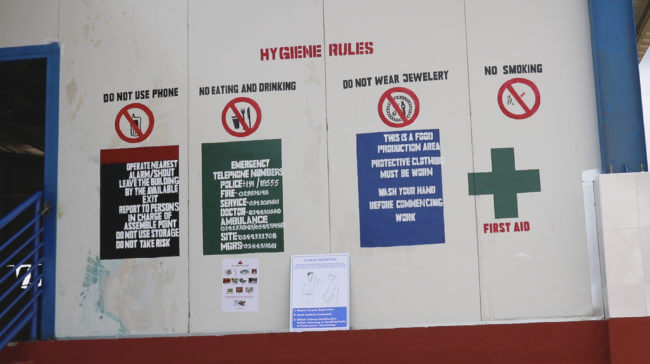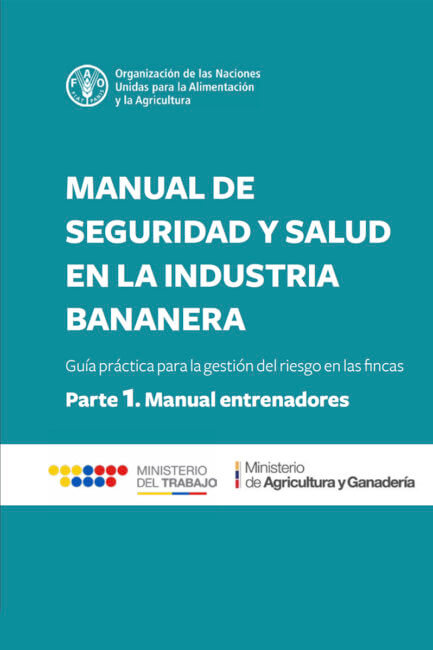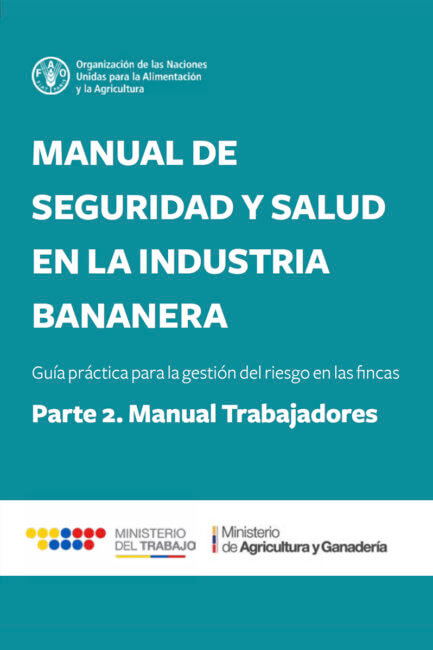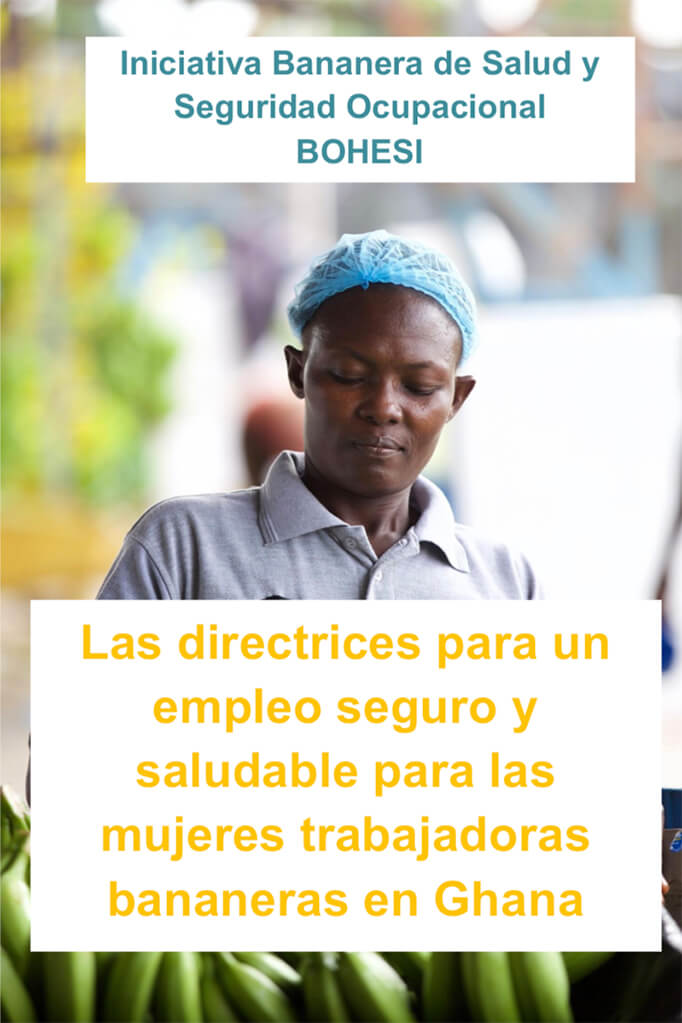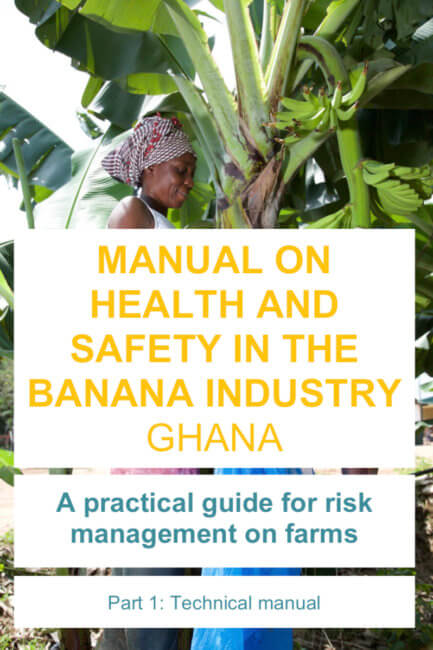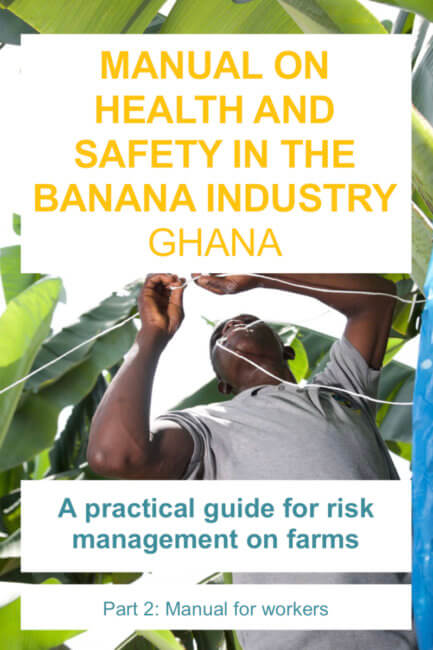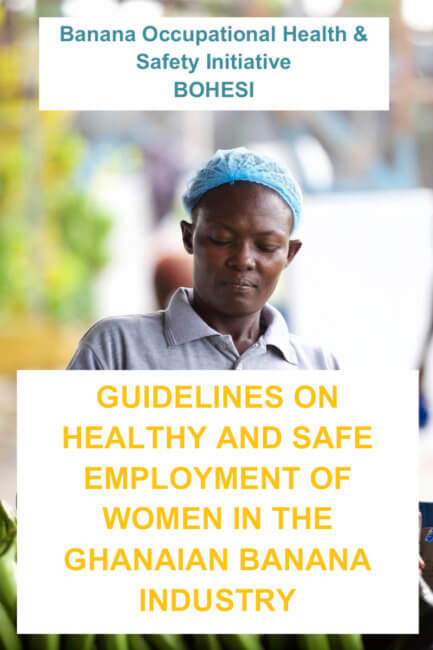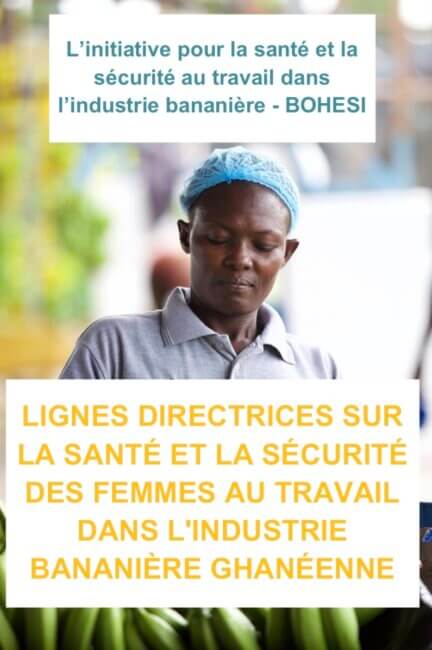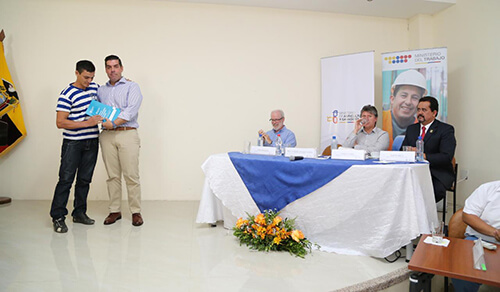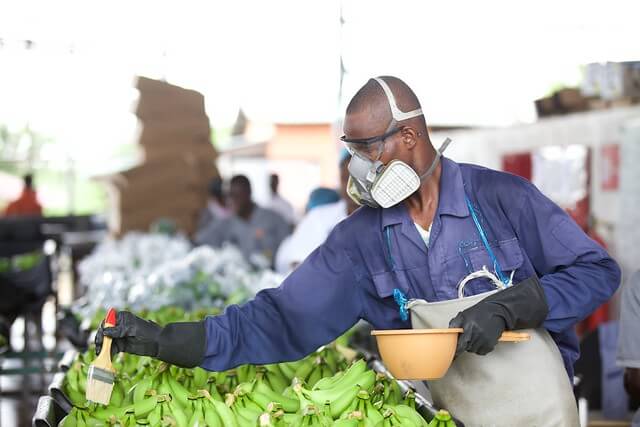The Banana Occupational Health and Safety Initiative (BOHESI) is a pilot project being implemented in Ecuador and Cameroon with an unprecedented involvement of public and private sector actors, as well as civil society, at local and international levels. Amongst its key outcomes, it counts with ground-breaking transformations relating to labour rights concerns for banana workers in the field of occupational health and safety (OHS).
Only in Ecuador, the institutional impacts achieved by BOHESI activities have the potential to reach 163,039 hectares of banana farms, which are distributed amongst 4,787 small to large producers. These impacts will potentially benefit up to 220,000 workers employed in the Ecuadorian banana sector directly and 2 to 2.5 million indirectly (MAG, 2015).
In Cameroon, the industry actors involved – both company and trade union – represent the entire national banana export sector, reaching approximately 8,000 hectares of banana farms and at least 14,000 workers employed directly in the industry.
Bearing this in mind, it is important to highlight the key achievements and future steps of the BOHESI project, as they can provide key learnings for the future of OHS activities in the banana industry on a global scale.
The initiative, inaugurated in 2014 and coordinated by Solidaridad, Banana Link and the World Banana Forum Secretariat, has counted on the Ecuadorian public sector, through the main intervention of the Ministry of Labour (MoL), in the compilation of legislation, the writing of technical notes, and content review; in addition, the support of the Ministry of Agriculture (MAG) and the Ecuadorian Institute of Social Security (IESS), which have supported in the review of the contents. In turn, the collaborators of BOHESI, in addition to the members of the WBF, have contributed by providing private manuals, content review and opinions. The initiative has also been supported by the International Labour Organization (ILO), in addition to the Social Protection Division of the FAO (ESP).
BOHESI has been financed mainly by the Sustainable Trade Initiative (IDH), established by the Dutch government, which is itself financed by various European governments. The initiative has also counted on financial contributions from: Tesco, Fairtrade International (FLO), Compagnie Frutière, PHP, IPL/ASDA, REWE, Jumbo, Fyffes and AgroAmerica; and match / in-kind contributions from Solidaridad, the WBF Secretariat, AEBE, Compagnie Frutière, Plantations du Haut Penja (PHP), the PHP Union Platform, Fako Agricultural Workers Union (FAWU), Cameroon Development Company (CDC) and Dole.
Text reproduced from http://www.fao.org/world-banana-forum/projects/bohesi/en/
